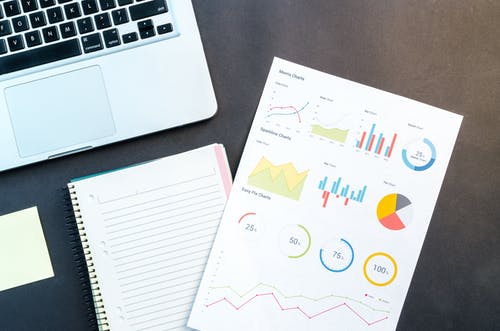The modern-day business world is run by data, the data is used to power business decisions. Business decisions are backed by facts, numbers, and trends. Numbers and data are generated by almost everything, it is therefore left to the business decision-maker to examine and analyze the data to determine the most important ones in strategy development.
Sadly, most businesses do not use the data generated, research by Inc.com found that businesses don’t use 73% of their generated data, also the companies who utilize data only make use of less than half of the company’s generated data in making decisions.
The benefits of utilizing data effectively cannot be overemphasized, a company would be able to:
1) Know the exact needs of its customers,
2) Determining important customers,
3) Make savings from doing aimless advertising,
4) The important resources that affect the business process and end-product success,
5) Predict the future of the business environment.
· Knowing customer needs: Understanding that data is more than just numbers, data is both qualitative and quantitative. Therefore, in terms of customer service, the best data available is the feedback by customers. The best way for feedback that’s effective is routine feedback, constant collection gives a track of what your customers feel every time they interact with your service. Feedback questions vary with a range of numbers, but a simple yet encompassing question to an overview of customer service is: “How likely are you to refer us to a friend?” This is a simple measure of how satisfied a customer is. Whenever a customer rating falls below the business average, you immediately reach out on how you can better serve the customer.
· Segmenting customers: Your customer list is a combination of different segments. It consists of the casual one-timers, the loyal everyday shopper, and VIPs. Curating this list will need more information about your customers, but once this list is set up, analyzing makes segmentation of your customer base is easier. Therefore, you can reach out to each segment using specific messages, e.g., those who prefer discount coupons and the segments that prefer bespoke services.
· Make savings on advertising: Advertising is an important business expense, however, employing data helps reduce unproductive advertising. Analyzing data such as customer profiles will help to streamline marketing efforts to the best channels that will yield maximum customers. Businesses employing many channels of advertising will benefit greatly, as data will enable them to perform targeted advertising campaigns at a lower cost.
· Prioritize business process: Data and its analysis can help in optimizing business processes, analyzing previous business data will help in determining important and necessary processes in the supply chain, and less important and unnecessary processes. To this end, businesses can run effectively, by simplifying encumbering processes and cutting unnecessary costs.
· Predict the future of business: A business that excels in data and is customer-centric, will be able to timely and adequately forecast business trends. Such businesses rely on previous data gathered and analyze this data to decipher trends and patterns. With advances in artificial intelligence, business forecasting has been transformed. Ideal data sets are chosen, queried, and analyzed, the forecast is verified and relayed to decision-makers so the business can stay ahead of competitors.
Business executives must examine bigger trends in the market, such as changes in the pricing of resources, shipping, or manufacturing. Data helps in the decision to:
Do nothing and absorb the higher costs, because it has enough of a profit margin to still be successful, while many of its competitors will need to raise prices. Or decide to increase the price while transferring the costs to the consumer, because of data on their loyal customers or the uniqueness of their products.
Another important data in business is the customer experience data, which is a non-financial business performance indicator i.e., data that cannot be expressed in monetary terms, which are related to customer relationships and their workings, product or service quality, and so on.
Examples of companies utilizing data effectively are Google and Facebook. These two companies heavily rely on the consumer data they generate to improve their products, services, and ultimately user experience, evidence of this is increasing irresistible usage these two companies have garnered over the years, thus making them the best Ads platforms through which other businesses advertise their product and services. Back home in Nigeria, a company utilizing data generated is MTN Nigeria, this company has grown to be the telecom with the largest subscriber base in Nigeria. MTN constantly introduces plans and programs that resonate with its consumers, thereby increasing its customer base. All this points to the company utilizing its customer experience data.The importance of data cannot be overemphasized, therefore the faster your company gets its data strategy right the better. Here at EZAdvisory, we have the tools and skilled personnel to help you make sense of the data your business generates and we help you build the right strategy towards your desired growth aim. Check out our audit offering here.

